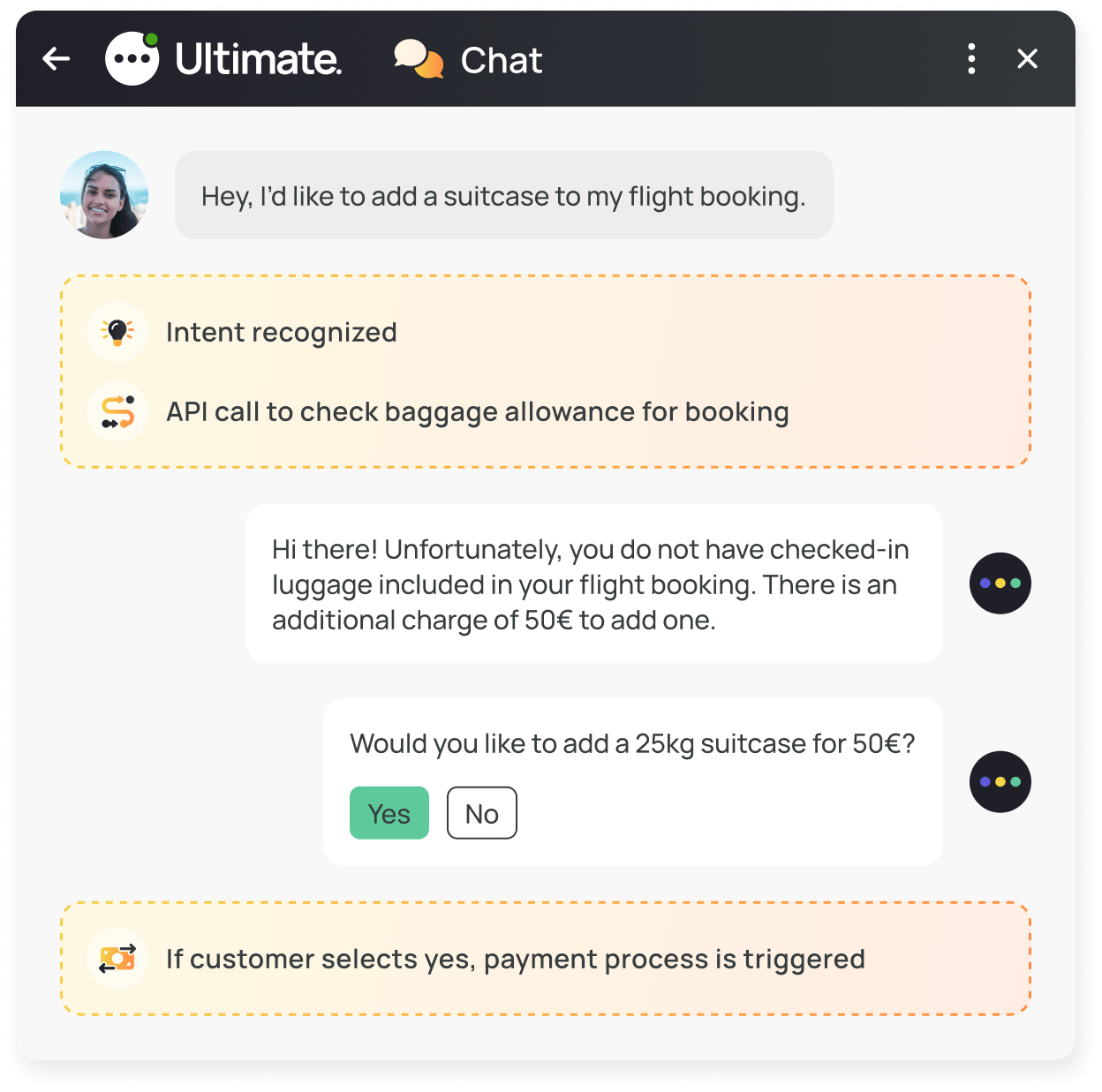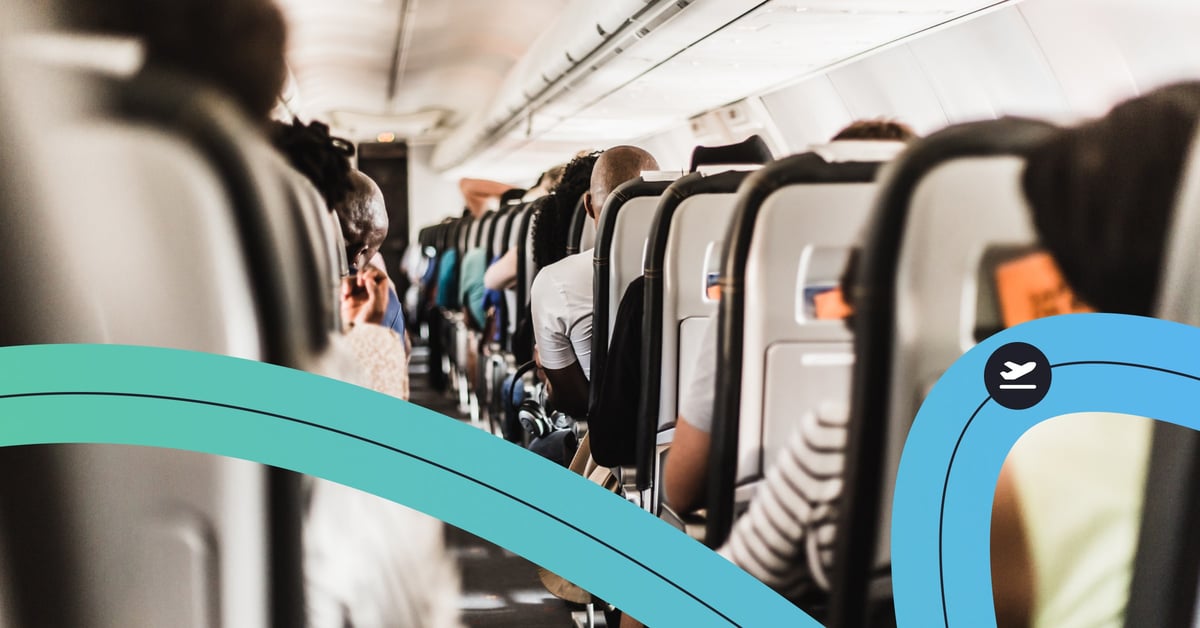From security software to building itineraries with ChatGPT — AI is shaping the travel industry for travelers and businesses alike. Here are three examples of how AI is being used in the travel industry in 2024 and beyond, with tips on how businesses like yours can benefit.
Tip 1: Use AI for better customer support
Provide multilingual CX
In the travel industry, you’ll have users from all kinds of locations and backgrounds contacting you when there’s an issue, even if you focus on just one specific market. That’s why it’s important to provide support in the language your users are speaking, not only to provide a better experience, but also to avoid misunderstandings.
It’s what helped leading vacation rental HomeToGo and Iceland’s flagship carrier serve their global customer bases.
Up efficiency behind the scenes: Booking changes
Beyond that, the types of requests might not seem complex on the surface, like updating or canceling a booking or reservation, but they might require complex logic behind the scenes.
Let’s say an airline customer wants to add baggage to their booking — a certain number of bags might be included up to a certain weight and it might cost something to go above that — and all of those details might be different depending on the class and type of ticket they booked. So to automate those kinds of requests, you’ll need to be able to retrieve detailed booking information and provide specific responses based on what the customer purchased.
Your go-to tools for these types of behind-the-scenes automation? Backend integrations. They’re what seamlessly connects your app or website’s frontend with processes like changing a ticket, paving the way for end-to-end self-service.

A backend API integration enabling a bot to handle booking changes.
Another hot topic: 24hr cancellation windows for travel tickets. Sometimes, customers will reach out within this window, but won’t hear back from support agents until it’s too late due to long first response times (FRT) or towering support backlogs.
Here, automation can help cancel or manage bookings before a customer will get charged (or before businesses end up taking on the fees as a gesture of goodwill to ensure good CX).
Use case spotlight: How Finnair uses AI to help travelers change flights
Finnish flagship carrier Finnair often has customers requesting to change their flight. Based on the customer’s booking, this could be a voluntary change, which has its own conditions and cost, or it could be an involuntary change, which generally waives any cost for changing. With automation, they can check which case applies to the customer’s booking and give them personalized information through their bot.
By automating behind-the-scenes processes, you are tapping into one of the latest customer service trends.
Tip 2: Try generative AI
Use generative AI for personalized pre-trip planning
Buying a trip to Morocco is not the same thing as buying a pair of shorts. For many people, annual vacation time is limited. It may be the only time in the year they can spend quality time with their family. It may be their only time to escape the drudgery of work and wintertime. And no matter your budget, everyone wants — and needs — this time to be worth their while. That’s why so many travelers like to do thorough research on their destination experience before committing to a purchase.
Like anywhere else, AI has made it easier and faster to optimize their trip.
Tried and tested examples include comparison sites like Skyscanner or Momondo mapping out price developments for flight tickets, or sites like Expedia and booking.com using AI to generate personalized itineraries based on past preferences and customer data.
Most recently, generative AI like ChatGPT has proven exceptionally adept at creating personalized, interactive itineraries based on parameters entered by users themselves.
Join us on our journey to humanize AI in customer support
At Ultimate, we’ve been busy investigating use cases for generative AI and large language models (LLMs), the tech behind ChatGPT. We've even built the tech right into our product so you can connect your FAQ page or knowledge base to build a bot in minutes with UltimateGPT.
See UltimateGPT in action: Watch the generative AI for travel companies demo
An LLM-powered knowledge base can help answer questions about the expected traveling experience, like:
- I want a 5 star hotel
- Is there a beach nearby?
- Can I upgrade my experience?
- What are some bookable experiences and things to do at my destination?
But generative AI in travel is not just a fair-weather friend. It can also help travelers (and travel providers) troubleshoot the minute something goes wrong. Enter LLM-powered customer support automation.
More on generative AI and travel
Leverage generative AI for mid-trip troubleshooting
An excellent way to use LLMs and generative AI in customer support is ticket summaries. This helps both customers and your support team speed up solutions for urgent issues like complaints about accommodation which might not be up to standard.
Find out how you can add generative AI to your support in minutes
Tip 3: Use AI for more sustainable travel
There’s no doubt people are eager to resume traveling after the pandemic. But one, albeit unintentional, side effect of 2+ years of Covid-19 restrictions around the world has been a massively reduced carbon footprint. No small feat considering international travel made up almost 10% of global carbon emissions before the pandemic. That’s why AI researchers are starting to look into AI-powered solutions to sustainable travel, like a new project that wants to reduce carbon emissions by monitoring visitor flows in Germany.
Travel is back, baby — and AI is helping the industry reinvent itself. It’s making it easier, faster, and more efficient than ever for travel businesses from airlines to sustainable travel agencies to get back on their feet. And with new forms of AI like ChatGPT making quantum leaps within weeks, we can only expect this trend to keep making global travel better, safer, and more memorable in the foreseeable future.
